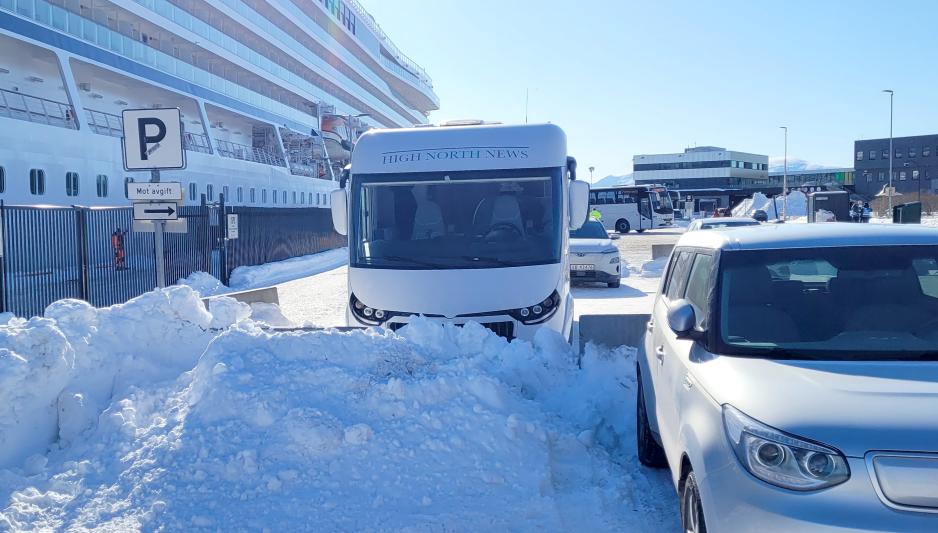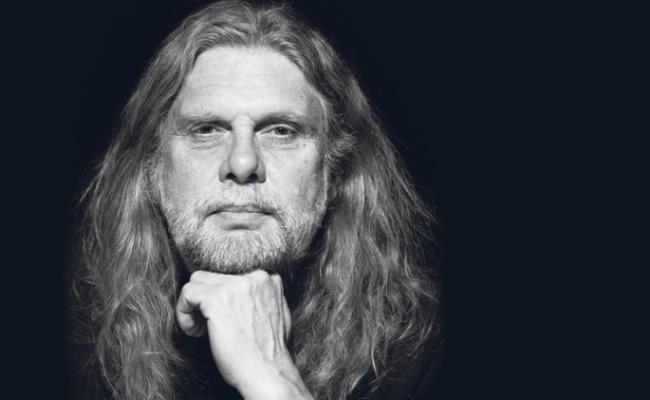Arne O. Holm says Please Remain Seated Until the Seat Belt Sign Has Been Turned Off

Our job is to convey knowledge about the north and voices from the north. Here we are in Tromsø to follow the Norwegian government's presentation of the Arctic Council's program for the coming two years under Norwegian leadership. (Photo: Arne O. Holm)
(Commentary) Creating a newspaper in which the Arctic and the High North are the coverage areas is a privilege, a demanding privilege. Our journalistic task is to provide you, the reader, with insight and knowledge about a sparsely populated part of the world, which simultaneously plays a leading part in the international arena.
We have a lot in common, those of us who live in the north, not least the fear of being ignored.
The fear of being reduced to pieces in an international game.
The winter and the beginning of spring are the seasons of national and international conferences with a focus on the High North. High North is present at meeting places that stretch from Kirkenes in the east to Anchorage in Alaska.
We are present
We are present when the Norwegian government presents its plans for the chairship of an Arctic Council that many fear will collapse under the weight of a bloodthirsty despot in Russia. We are present in an America which can choose Donald Trump as its president in the next election, without a trace of democratic thinking.
We are also present as politicians and business leaders travel from Svalbard to Oslo to present their worries to government officials.
We travel to the capital when national think tanks and research institutions present their analyses of the security policy situation in the north.
First and foremost, we are present outside of the conferences, where the battles of cod quotas, salmon taxes, military rearmament and security policies, tourism, energy crisis, and the battle for land, to name a few, are played out.
Because High North News is editorially located in the north, we are also close to local communities on the border with Russia.
We convey knowledge and journalism from the north intended for an audience that is often located entirely other places in the word, but we are also present when prime ministers or ministers of foreign affairs, chiefs of defense, or others powerful enough to decide on the future in the north, no matter where in the world they come from, pay us a visit.
And this is where I feel a sense of powerlessness heading into, for some of us, the quiet week of Easter.
Fly in, fly out
One of the characteristics of the High North job market is "fly in, fly out".
The description could just as well have been applied to our decision-makers. Because how often have I not seen regional politicians, business leaders, indigenous representatives, youth who live in the north, energy suppliers, or others with thoroughly prepared opinions and analyses looking in vain for the authority persons the presentations were meant for?
When they have listened to themselves, they leave.
As a general rule, they have left the meeting room and moved on. When they have delivered their message, explained the lay of the land, listened to their own opinions and analyses, they are in a hurry to move on to God knows where. Perhaps they leave a bureaucrat – no hard feelings towards bureaucrats – as a sort of listening post to the north.
I write these depictions with a mild inside voice, but there is some gravity behind it.
Located in the north
For those of us located in the north, these meeting places are very significant. Not everyone has a wallet big enough to buy political influence through hired communications managers with a direct line to the decision-makers.
A security policy powder keg with unclear boundaries.
If the will to listen had been as important a quality as the ability to convey your own opinions, we might have avoided some of the conflicts we are in the middle of today.
Because there has been no shortage of warnings against the energy crisis we are now facing, which the answer from authorities has nevertheless been to subsidize battery factories and electrify the oil industry.
That the battle of land was not recognized until the Supreme Court delivered its Fosa judgment is incomprehensible.
The battle for ocean resources has been ongoing since Ottar Brox wrote his masterpiece "What is happening in Northern Norway" back in 1996.
Russia's war in Ukraine has made the High North into a security policy powder keg with unclear boundaries for what is under national control and what is left in the hands of foreign states.
All in all, complicated issues with great significance for us who live in the north.
Therefore, in unison with the SAS cabin crew in an airplane heading north, a request for those who wish to understand the High North and the Arctic:
- Please remain seated until the seatbelt sign has been turned off.
More from Arne O. Holm:
This article was originally published in Norwegian and has been translated by Birgitte Annie Molid Martinussen.



